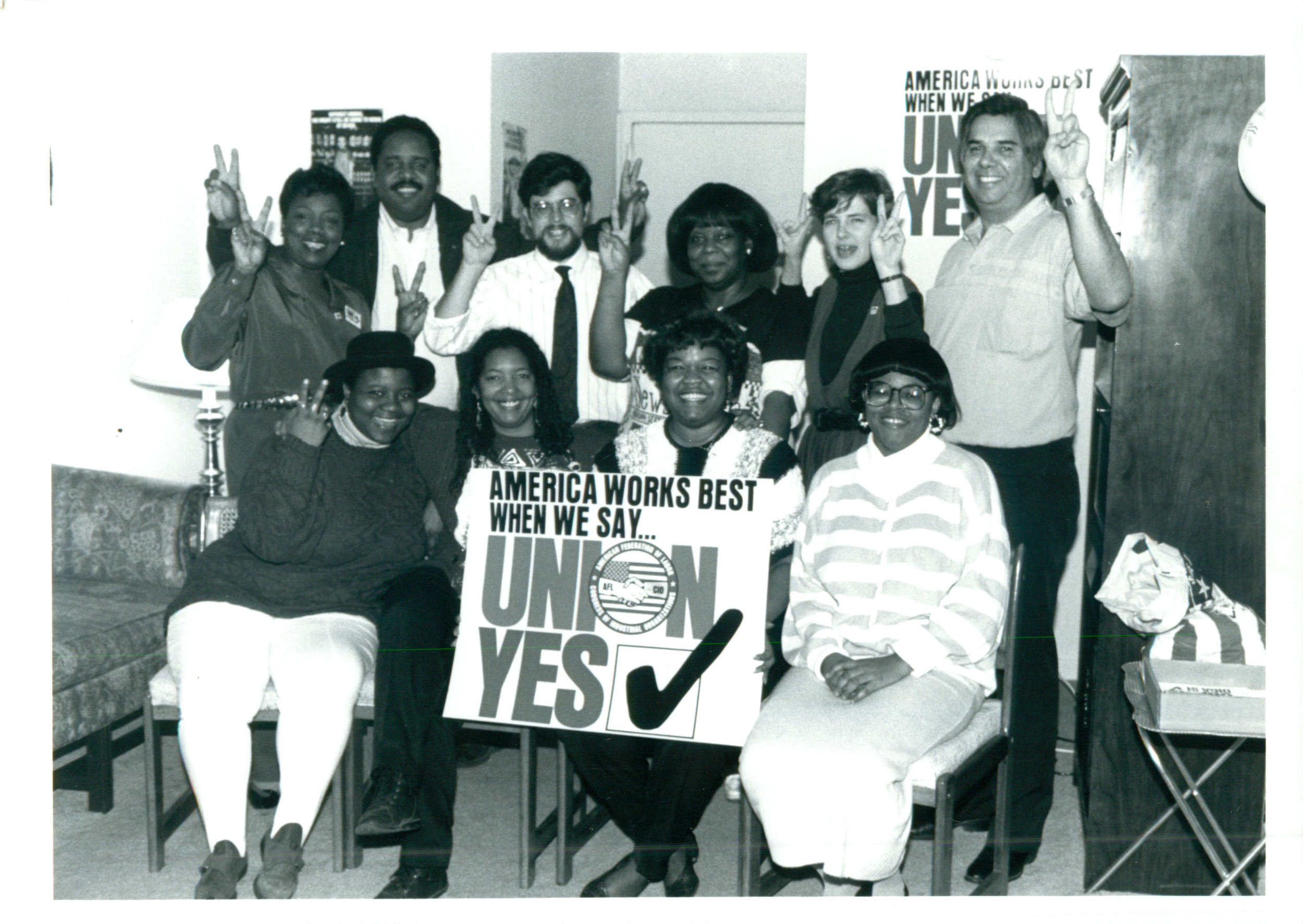Our history
Fighting for good jobs in the nation's capital for more than 80 years
Our Union has been part of Washington for more than 75 years. The first union for hospitality workers in the Nation’s Capital was Bartenders’ Local 75, which was established before Prohibition was imposed in 1920. As workers continued to organize, they established new local unions – each craft with its own local union. Joining the bartenders were Cooks Local 209, Service Workers Local 80, Waiters Local 781, and Waitresses Local 507. Washington watched major hotel organizing campaigns unfold in the late 1930s and early 1940s as workers joined together to form unions in their workplaces.
At that time, the various local unions joined together to negotiate in what was known as the Joint Board. Negotiations with the hotels were difficult as the industry fought to keep workers from gaining power. In 1946, workers across the city went on strike against all hotels. It was the first and only city-wide strike in the history of the Union. The strike was necessary to force the hotel industry to accept the Union as part of the workplace and to force management to bargain fairly.
In the days before the Union, working conditions in the hotel industry were horrible. Most workers were on the job 7 days a week. There was no such thing as a day off, vacation, or sick leave. Wages were at poverty levels and there were no benefits of any sort at all.
Following World War II the unions in the United States began to gain strength; however, workers in the service industries still lagged behind. In Washington, the separate local unions, still divided along craft lines, were making progress too, but slowly. They were constantly at odds with each other during contract negotiations with management. In fact, the hotel companies deliberately attempted to keep them divided, pitting one local union’s members against another.
Another great fight for change took place in the 1960s. In Washington in 1964, workers were still working 6 days a week. The “40 Hour Week” had not yet come to the hotel industry. At the contract negotiations, the Union put forth the proposal that workers should have two days of rest. Management responded that the “hotel industry cannot survive if workers have two days off. The industry will collapse.” Of course, these threats proved false: the Union fought for and won that change, forcing management to put the 40-hour week in the contract. Without the Union, workers would still be working 6 days a week!
More positive change occurred as workers pulled together and the Union grew stronger. The Local 25 Pension was established in 1965 with a contribution of ½ cent per hour. Today, the contribution rate in Local 25 hotels is $2.45 per hour with increases in that rate in the near future.
In the 1970s the Union fought to get health care coverage in the contract. Up until that time workers were on their own if they got sick or injured. Initially, members only had health care paid for by the employer for themselves (single coverage). If they needed coverage for family members they had to pay out of their pocket for it.
In 1975 the five unions that made up the Joint Board merged together to form Local 25. This important move joined all of the various crafts together. Management was no longer able to pit one group of workers against another in bargaining. This increased the workers’ power and the result was even more dramatic improvements in the Union’s contracts. Wages began to increase and benefits improved dramatically. In the 1980s the Union fought and won a full array of benefits covering not only individual members but their families too. The comprehensive benefit package included full family healthcare, dental, optical and legal coverage, short and long term disability, and life insurance.
While the Union continued to improve the economic lives of its members, it also worked hard to change working conditions in the hotels by negotiating powerful protective language in its contracts. The Union fought to protect workers from unfair workloads by negotiating ground-breaking language, like room attendants having their quotas reduced on checkout days. The Union also forced management to respect workers’ time and pay by winning contract provisions; for example, penalties against management for failing to post schedules on time or pay workers properly. Important rights like the right to bid on a promotion or transfer and get it based on seniority—not because of management favoritism—also were guaranteed in the contract.
Local 25 and the Fight for Social Justice
Local 25 and its founding unions have been at the forefront of social justice movements in the Nation’s Capital for more than 75 years.
Our union was and is a leader in the fight for civil rights. Our members were there at the March on Washington in 1963 when Martin Luther King Jr. spoke of The Dream from the steps of the Lincoln Memorial.
We are on Capitol Hill today working to get the rights of immigrant workers protected under law. We were one of the first unions to come out in support of autonomy and statehood for the District of Columbia. We have been the union that has led the way protecting free speech – the kind of speech we need on our picket lines – in the District. We have passed laws that help hotel workers organize in Washington.
Our contracts have language that protects immigrant workers on the job. We have been a leader in the labor movement for LGBT rights, and Local 25 was one of the first unions in the country to have language guaranteeing domestic partner healthcare coverage.
Our union’s proud history continues in the struggles of today. Whether it is to protect voting rights or the rights of those who work, Local 25 members make a difference through their Union.




